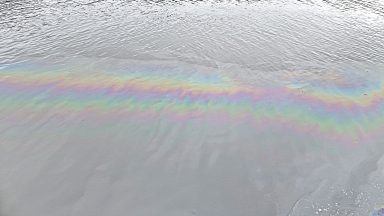As governments and corporations around the world struggle to come to terms with a lack of diversity amongst their workforces, the Scottish government has created a new senior position to make sure it reflects the population it serves.
The director for equality, inclusion and human rights will be tasked with creating a workplace “where equality, inclusion and human rights is at the centre of how we develop policy and deliver services.”
The job comes with a £95,000 salary and will be based in either Glasgow or Edinburgh.
“As we build back from the coronavirus pandemic and its impact on Scotland’s communities you will support Scottish ministers in helping secure our ambition of a Scotland with opportunities for all to flourish through increased wellbeing and sustainable and inclusive economic growth,” the post states.
Attention to diversity – or the lack of it – has intensified since the May 25 death of George Floyd. The Minnesotan died after being arrested by the police, who knelt on his neck and choked him to death. A series of similar police-related deaths has led to everything from protests to rioting on the streets of America and kept the conversation raging through the summer months.
The rage expressed by American citizens became a focal point for governments and businesses around the world who vowed to take greater action to recognize the challenges facing minority groups.
While Scotland reported 4 per cent of its citizens came from a black, ethnic or minority background in its last census, that number is expected to rise in the coming survey and the percentages are higher in the country’s largest cities with 12 per cent of those in Glasgow identifying as BAME.
Their lack of representation in the country’s public institutions was highlighted by justice minister Humza Yousef in June when he addressed Floyd’s death and the systemic problems it highlighted for countries around the world.
“To our shame, there are no Black Members of the Scottish Parliament,” Yousef told parliament. “This is the part where we should all begin to feel uncomfortable. We have to accept the reality and the evidence in front of us, that Scotland has a problem of structural racism. “
Yousaf went on to address white people directly, saying “as people of colour, we don’t need your gestures. Don’t just tweet Black Lives Matter.”
“Don’t just post a hashtag. Don’t just take the knee. What we need from you is action and for you to be anti-racist by your deeds. Don’t just tell us how you’re not a racist – I take that as a bare minimum – you must be anti-racist.”
His speech, along with his introduction of a controversial bill that would make it easier for police to charge someone for hateful speech uttered during a crime, led to a slew of threats and warnings issued from cowards on social media, which he said made his consider whether he should remain in politics.
The job post reflects the urgency felt among many in the community, saying the government is “ambitious about diversity and inclusion” and wants to the be an organisation that “reflects the people of Scotland and be a place where people can be themselves.”
“We would particularly welcome interest from women and individuals from those groups currently underrepresented at this level, including lesbian, gay or bisexual orientation and/or transgender or intersex status, disabled and those from a minority ethnic background,” the post reads.
Follow STV News on WhatsApp
Scan the QR code on your mobile device for all the latest news from around the country



























